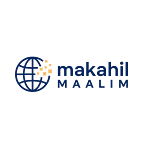Online work has exploded in popularity in recent years. With social media full of people claiming to earn thousands from their laptops, it’s easy to get caught up in the hype. But what’s real, and what’s just a myth? In this post, we break down some of the biggest misconceptions about online work and reveal what it’s actually like.
Myth 1: Online Work Is Easy Money
Reality: While it’s true you can earn money online, it’s not a get-rich-quick scheme. Like any career, freelancing or remote work requires time, skill development, and patience. The top earners you see online didn’t get there overnight—they built their reputation over time.
Myth 2: You Can Work Anytime, Anywhere
Reality: Flexibility is one of the perks of online work, but that doesn’t mean no structure. Successful freelancers and remote workers create routines, meet deadlines, and sometimes even work more hours than traditional jobs to keep their clients satisfied.
Myth 3: You Need to Be a Tech Genius
Reality: Many online jobs require basic computer skills. You don’t need to be a programmer to succeed online. Whether it’s writing, graphic design, tutoring, or data entry—there’s something for everyone.
Myth 4: You’ll Start Earning Immediately
Reality: Starting out is usually the hardest part. It can take weeks or months to land your first job. Building a strong portfolio, learning how to write proposals, and understanding client needs are all part of the journey.
Myth 5: All Online Jobs Are Scams
Reality: Scams exist, but there are also countless legit platforms and clients. Doing proper research, avoiding unrealistic offers, and sticking to trusted websites like Upwork, Fiverr, or Freelancer can help you stay safe.
Myth 6: You Don’t Need to Invest in Tools or Learning
Reality: Like any career, investing in yourself is important. Whether it’s learning a new tool, buying a course, or getting better equipment—these small investments can drastically improve your performance and earnings.
Myth 7: Only People in the West Succeed Online
Reality: This is one of the biggest lies. Freelancers from all over the world—including Kenya, Nigeria, India, the Philippines—are building thriving careers. Your location doesn’t limit your potential if you bring value and professionalism.
Realities You Should Accept Before Starting
- Online work is competitive, but not impossible
- You need to keep learning and adapting
- Consistency matters more than speed
- Client communication can make or break your success
Final Thoughts
Online work isn’t a dream or a scam—it’s an opportunity. It’s real, it pays, and it grows. But only if you treat it seriously. If you’re ready to commit, learn, and stay patient, freelancing or remote work can absolutely change your life.
Stay tuned for tomorrow’s post, where we’ll guide you on the top platforms to start freelancing safely in 2025.






